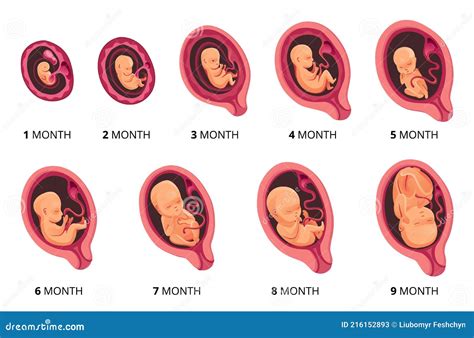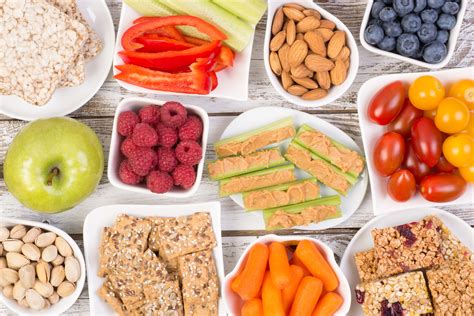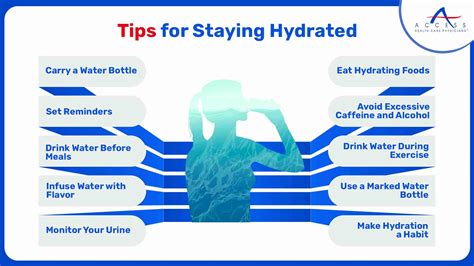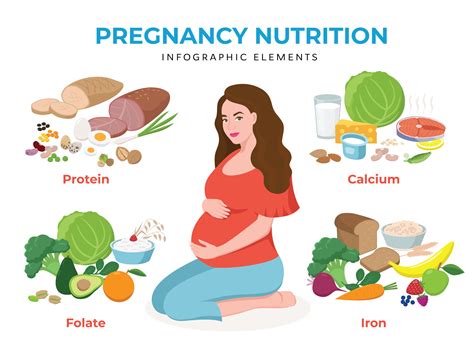Intro
Nourish your body with essential foods during pregnancy, including nutrient-rich fruits, lean proteins, and whole grains, to support fetal development and a healthy pregnancy journey.
Pregnancy is a unique and vital period in a woman's life, and it's crucial to maintain a healthy diet to support the growth and development of the fetus. A well-balanced diet provides the necessary nutrients, vitamins, and minerals for the mother's health and the baby's development. Eating the right foods during pregnancy can help prevent complications, ensure a healthy birth weight, and support the baby's overall health. In this article, we'll explore the essential foods to eat while pregnant, their benefits, and provide guidance on how to incorporate them into your diet.
A healthy pregnancy diet should include a variety of foods from all food groups, including fruits, vegetables, whole grains, lean proteins, and healthy fats. These foods provide essential nutrients like folic acid, iron, calcium, and protein, which are vital for the baby's growth and development. Additionally, a well-balanced diet can help manage pregnancy-related symptoms like morning sickness, fatigue, and constipation. With so many food options available, it's essential to know which foods are safe and beneficial to eat during pregnancy.
Pregnancy is a critical period for fetal development, and a healthy diet plays a significant role in supporting this process. The foods we eat during pregnancy can affect the baby's birth weight, IQ, and even their future health. For example, folic acid-rich foods can help prevent birth defects of the brain and spine, while iron-rich foods can support the production of red blood cells. Furthermore, a healthy diet can also reduce the risk of pregnancy complications like gestational diabetes, hypertension, and preeclampsia. With this in mind, let's dive into the essential foods to eat while pregnant and explore their benefits.
Essential Nutrients for Pregnancy

During pregnancy, it's crucial to consume essential nutrients like folic acid, iron, calcium, and protein. These nutrients support the baby's growth and development, as well as the mother's health. Folic acid, for example, is vital for preventing birth defects of the brain and spine, while iron supports the production of red blood cells. Calcium is essential for the development of the baby's bones, teeth, and muscles, while protein supports the growth and development of the baby's tissues. Foods rich in these nutrients include leafy greens, beans, lentils, lean meats, and dairy products.
Foods Rich in Folic Acid
Foods rich in folic acid include leafy greens like spinach, kale, and collard greens, as well as beans, lentils, and citrus fruits. These foods can help prevent birth defects of the brain and spine, making them an essential part of a pregnancy diet. Some examples of folic acid-rich foods include: * Leafy greens like spinach, kale, and collard greens * Beans like black beans, chickpeas, and kidney beans * Lentils and peas * Citrus fruits like oranges, grapefruits, and lemons * Fortified cereals and breadFoods to Support Fetal Development

Foods that support fetal development include those rich in omega-3 fatty acids, iron, and calcium. Omega-3 fatty acids, found in fatty fish like salmon and sardines, support the development of the baby's brain and eyes. Iron-rich foods like lean meats, beans, and lentils support the production of red blood cells, while calcium-rich foods like dairy products and leafy greens support the development of the baby's bones, teeth, and muscles. Some examples of foods that support fetal development include:
- Fatty fish like salmon, sardines, and anchovies
- Lean meats like chicken, turkey, and beef
- Beans and lentils
- Dairy products like milk, cheese, and yogurt
- Leafy greens like broccoli, cauliflower, and kale
Foods to Manage Pregnancy Symptoms
Foods that can help manage pregnancy symptoms like morning sickness, fatigue, and constipation include those rich in vitamin B6, potassium, and fiber. Vitamin B6-rich foods like bananas, avocados, and sweet potatoes can help alleviate morning sickness, while potassium-rich foods like bananas, leafy greens, and sweet potatoes can help manage blood pressure. Fiber-rich foods like whole grains, fruits, and vegetables can help prevent constipation and support healthy digestion. Some examples of foods that can help manage pregnancy symptoms include: * Bananas and avocados * Sweet potatoes and whole grains * Leafy greens like spinach, kale, and collard greens * Fruits like berries, citrus fruits, and apples * Vegetables like broccoli, carrots, and bell peppersHealthy Snacking During Pregnancy

Healthy snacking during pregnancy is essential to support the mother's health and the baby's development. Snacks rich in nutrients like fruits, vegetables, whole grains, and lean proteins can help manage hunger and prevent overeating. Some examples of healthy snacks during pregnancy include:
- Fresh fruits like apples, bananas, and berries
- Vegetables like carrots, bell peppers, and cucumbers
- Whole grain crackers and bread
- Lean proteins like nuts, seeds, and hard-boiled eggs
- Yogurt and cheese
Foods to Avoid During Pregnancy
Foods to avoid during pregnancy include those high in mercury, like shark, swordfish, and king mackerel, as well as raw or undercooked meats, eggs, and fish. These foods can increase the risk of foodborne illnesses and harm the developing fetus. Additionally, foods high in sugar, salt, and unhealthy fats can contribute to gestational diabetes, hypertension, and other pregnancy complications. Some examples of foods to avoid during pregnancy include: * High-mercury fish like shark, swordfish, and king mackerel * Raw or undercooked meats, eggs, and fish * Unpasteurized dairy products and juices * Foods high in sugar, salt, and unhealthy fatsStaying Hydrated During Pregnancy

Staying hydrated during pregnancy is essential to support the mother's health and the baby's development. Drinking plenty of water can help prevent constipation, reduce the risk of urinary tract infections, and support healthy digestion. Additionally, hydration can help manage pregnancy symptoms like morning sickness and fatigue. Some tips for staying hydrated during pregnancy include:
- Drinking at least 8-10 glasses of water per day
- Avoiding sugary drinks and caffeine
- Eating hydrating foods like watermelon, cucumbers, and celery
- Avoiding foods high in salt and sugar
Meal Planning and Preparation
Meal planning and preparation are essential for a healthy pregnancy diet. Planning meals in advance can help ensure that you're getting the necessary nutrients, while preparation can help save time and reduce stress. Some tips for meal planning and preparation include: * Planning meals around essential nutrients like folic acid, iron, and calcium * Preparing meals in advance using healthy cooking methods like grilling, roasting, and steaming * Involving your partner or support system in meal planning and preparation * Keeping healthy snacks on hand to manage hunger and prevent overeatingNutrition and Pregnancy Complications

Nutrition plays a significant role in preventing pregnancy complications like gestational diabetes, hypertension, and preeclampsia. A healthy diet rich in essential nutrients like folic acid, iron, and calcium can help reduce the risk of these complications. Additionally, a healthy diet can help manage pregnancy symptoms like morning sickness, fatigue, and constipation. Some examples of nutrition and pregnancy complications include:
- Gestational diabetes: a condition characterized by high blood sugar levels during pregnancy
- Hypertension: a condition characterized by high blood pressure during pregnancy
- Preeclampsia: a condition characterized by high blood pressure and damage to organs like the kidneys and liver
Pregnancy Nutrition and Mental Health
Pregnancy nutrition and mental health are closely linked. A healthy diet rich in essential nutrients like omega-3 fatty acids, vitamin D, and folate can help support mental health during pregnancy. Additionally, a healthy diet can help reduce the risk of postpartum depression and anxiety. Some examples of pregnancy nutrition and mental health include: * Omega-3 fatty acids: found in fatty fish, nuts, and seeds, these nutrients support brain health and development * Vitamin D: found in fatty fish, fortified dairy products, and sunlight, this nutrient supports mood and cognitive function * Folate: found in leafy greens, beans, and fortified cereals, this nutrient supports mood and cognitive functionPregnancy Nutrition and Exercise

Pregnancy nutrition and exercise are closely linked. A healthy diet rich in essential nutrients like protein, complex carbohydrates, and healthy fats can help support exercise and physical activity during pregnancy. Additionally, exercise can help reduce the risk of pregnancy complications like gestational diabetes, hypertension, and preeclampsia. Some examples of pregnancy nutrition and exercise include:
- Protein: found in lean meats, beans, and dairy products, this nutrient supports muscle growth and repair
- Complex carbohydrates: found in whole grains, fruits, and vegetables, this nutrient supports energy production and endurance
- Healthy fats: found in nuts, seeds, and avocados, this nutrient supports heart health and satisfaction
Pregnancy Nutrition and Weight Gain
Pregnancy nutrition and weight gain are closely linked. A healthy diet rich in essential nutrients like protein, complex carbohydrates, and healthy fats can help support healthy weight gain during pregnancy. Additionally, a healthy diet can help reduce the risk of pregnancy complications like gestational diabetes, hypertension, and preeclampsia. Some examples of pregnancy nutrition and weight gain include: * Protein: found in lean meats, beans, and dairy products, this nutrient supports muscle growth and repair * Complex carbohydrates: found in whole grains, fruits, and vegetables, this nutrient supports energy production and endurance * Healthy fats: found in nuts, seeds, and avocados, this nutrient supports heart health and satisfactionWhat are the essential nutrients for a healthy pregnancy?
+The essential nutrients for a healthy pregnancy include folic acid, iron, calcium, and protein. These nutrients support the baby's growth and development, as well as the mother's health.
What foods should I avoid during pregnancy?
+Foods to avoid during pregnancy include those high in mercury, like shark, swordfish, and king mackerel, as well as raw or undercooked meats, eggs, and fish. Additionally, foods high in sugar, salt, and unhealthy fats can contribute to gestational diabetes, hypertension, and other pregnancy complications.
How can I stay hydrated during pregnancy?
+Staying hydrated during pregnancy is essential to support the mother's health and the baby's development. Drinking plenty of water, avoiding sugary drinks and caffeine, and eating hydrating foods like watermelon, cucumbers, and celery can help support hydration.
What are some healthy snack options during pregnancy?
+Healthy snack options during pregnancy include fresh fruits, vegetables, whole grain crackers and bread, lean proteins like nuts and seeds, and yogurt and cheese.
How can I manage pregnancy symptoms like morning sickness and fatigue?
+Managing pregnancy symptoms like morning sickness and fatigue can be achieved through a healthy diet rich in essential nutrients like vitamin B6, potassium, and fiber. Additionally, staying hydrated, getting plenty of rest, and engaging in regular exercise can help reduce the severity of these symptoms.
In conclusion, a healthy pregnancy diet is crucial for supporting the mother's health and the baby's development. By incorporating essential nutrients like folic acid, iron, and calcium into your diet, you can help reduce the risk of pregnancy complications and support a healthy pregnancy. Remember to stay hydrated, manage pregnancy symptoms, and engage in regular exercise to support a healthy pregnancy. If you have any questions or concerns about your pregnancy diet, be sure to consult with your healthcare provider. Share this article with your friends and family to help them understand the importance of a healthy pregnancy diet. Leave a comment below to share your thoughts and experiences with pregnancy nutrition.
